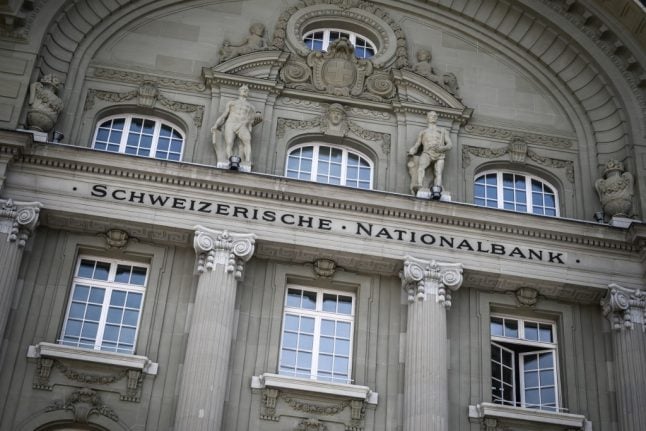“The downturn in the international economy and the measures to contain the virus will lead to a marked decline in economic activity in Switzerland… GDP growth is likely to be negative for the year as a whole,” Swiss National Bank (SNB) said in a statement.
It added that it will “be working closely with the Federal Council to provide the best possible support to the economy”.
The SNB added that it is maintaining its current policy rate and interest on sight deposits at the SNB at −0.75 percent.
The central bank will try to lessen the economic impact of the Covid-19 epidemic while intervening heavily on currency markets to slow the appreciation of the safe-haven Swiss franc.
Switzerland’s goal is to keep the Swiss Franc from appreciating because the country relies heavily on exports with the European Union. But when the franc rises, it makes Swiss products less competitive — that is, too expensive — in eurozone markets.
The frenzy unleashed on the financial markets by the health crisis has strengthened more than ever the safe haven status of the franc. Last week alone, the National Bank's interventions in the foreign exchange market increased by 4.5 billion. This is the largest weekly increase since March 2017.
In 2011, the central bank had capped the franc at 1.2 euros, devaluing the Swiss currency by 8 percent. The SNB took this drastic step by printing billions of francs and using them to buy foreign money, pushing its foreign currency reserves to record highs.
However, in 2015, the SNB abandoned the cap, saying it was no longer justified. The franc's value immediately soared by around 30 percent.
In January 2015, the SNB had acquired foreign currency for 86.1 billion francs, then 67.1 billion in 2016, and 48.2 billion in 2017.
Only two months ago, experts predicted a positive outlook for the Swiss economy in 2020, attributing it to a strong manufacturing industry, increase in foreign demand and private consumption, as well as the recovery in the construction sector.
The pandemic has had devastating effects on Switzerland’s economy, threatening the existence ofsmall and medium-size companies, which constitute 99 percent of the country’s businesses.
Last week, the Federal Council announced a 10-billion-franc package to help companies and employees to make it through the crisis.
READ MORE: UPDATE: Switzerland declares state of emergency over coronavirus https://www.thelocal.ch/20200316/switzerland-declares-state-of-emergency-over-coronavirus



 Please whitelist us to continue reading.
Please whitelist us to continue reading.
Member comments